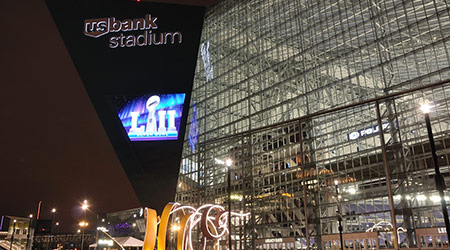
The Philadelphia Eagles weren't the only winners walking away from Super Bowl LII. Facilities personnel at US Bank Stadium in Minneapolis also came out ahead.
The day after the game, hundreds of stadium employees, food vendors, sustainability experts and volunteers worked together to sort roughly 60 tons of waste, marking it to be recycled, composted or reused.
It was the goal of stadium officials to make this a "Zero Waste" Super Bowl, say Fox6 News reports. This means that 90 percent of the waste generated during the event would stay out of landfills. And the remaining 10 percent would be sent to a waste-to-energy incineration plant where it will be burned to create energy.
Minneapolis is known for having stronger sustainability programs than many other large cities, but the Minnesota Pollution Control Agency, Hennepin County and the city all supported and pushed for the effort at the new stadium.
NFL officials were pleased with the results and have made it a priority to hold more "Zero Waste" Super Bowls in the future. They also encourage stadiums to continue such practices for the long term.
Stadium officials are happy to accommodate that request, commenting that a "Zero Waste" initiative will save money in the long run. It's estimated that a reduction in trash hauling payments will eventually cut the stadium's costs by as much as half.
Other stadiums in Minneapolis practice sustainability, too. Target Field, where the Twins play, has a monthly diversion rate of around 70 percent.
For more information on waste diversion initiatives in Minneapolis, click here.

 The Down and Dirty on Cleaning in Virus Season
The Down and Dirty on Cleaning in Virus Season How Surfactant Use is Expanding in Commercial Cleaning
How Surfactant Use is Expanding in Commercial Cleaning Clean Buildings Conference
Clean Buildings Conference